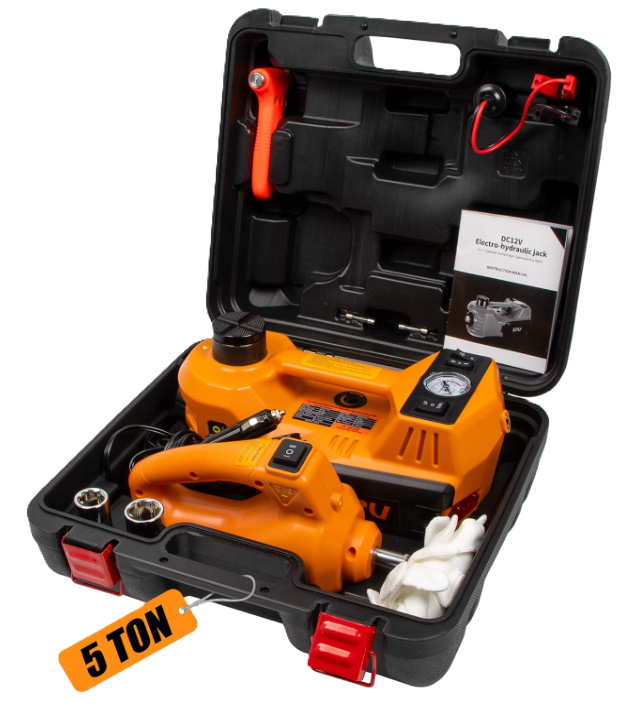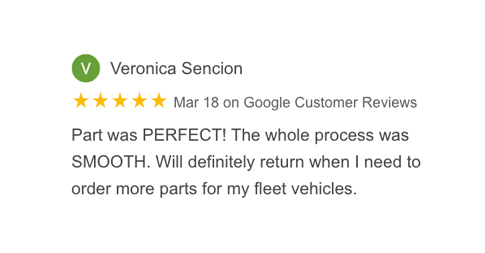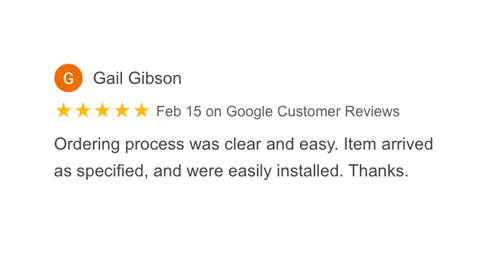Dealing with flat tires is inevitably a part of every driver’s life. Once this happens, you’ll have to go to the nearest gas station or tire service center to get your tires pumped up again.
But what if you’re in the middle of a long trip with no helpful rest stop in sight? In cases like this, having a portable tire inflator can be a lifesaver.
What Is a Portable Tire Inflator?
A portable tire inflator is a lightweight device that’s used to inflate a vehicle’s tires in a parking lot or beside the road. It comes with a connector hose that links to the tire’s valve connector and either a rechargeable battery or a power cord that connects to the car battery or lighter socket. It’s also lightweight and compact, making it easy to fit in the trunk or store in the garage.
Portable inflators are powered by electricity (sourced from the car’s power outlet, cigarette lighter, or car battery via alligator clips) or a rechargeable battery.
As a matter of fact, nobody should take a trip of any length without a good 12-volt or battery-operated tire inflator on board. It can’t fix a blowout, but it can prevent you from being stranded if your TPMS suddenly illuminates or you come out of your hotel room to find that you have a flat. The caveats are:
1.You must know how to use it and be able to check tire pressure.
2. It may take some time for a portable inflator to reinflate a tire that’s nearly flat.
3. If the leak in the tire is too large, the inflator won’t help.
Types of Portable Tire Inflators
There are different types of portable tire inflators available on the market, including handheld and console inflators. Let’s look into each type in detail:
Handheld Inflators
As the name suggests, these inflators are typically small enough that you can hold them by hand. They’re convenient for on-the-go tire inflation.

Console Inflators
Console inflators are larger compared to handheld ones. Usually connected to a power source, they have various hoses and attachments that take some time to set up.
So, if you’re looking for a portable inflator to bring with you during long trips, you’re better off getting a handheld inflator instead.
What’s good about console inflators is that they offer features that aren’t commonly found on handheld inflators. For example, some console inflators come with portable jump starters.

How to Use a Portable Tire Inflator
Portable tire inflators are easy to use. Simply follow the instructions that come with them. But to give you an idea, here’s how to use most portable inflators:
Inspect Your Tires
It’s important to determine the condition of the tire before inflating it. A bulge or a tread can cause a blowout, so don’t attempt to inflate a damaged tire.
Aside from checking the condition of the tire, you must also identify your ride’s correct tire pressure. You can usually find this on the sticker located on the driver’s door pillar.
Connect the Inflator to the Power Source
If you’re using a 12-volt inflator, connect it to your car’s power outlet. This step can vary depending on the portable tire inflator you have. You can skip this step if you’re using a rechargeable inflator, which has its own power bank.
Attach the Hose to the Tire Valve
Once you’ve powered your inflator, you can now remove your tire’s valve cap. Attach the inflator hose to the valve connector securely.
Set the Tire Pressure
If your portable tire inflator is equipped with a digital display or a pressure dial, you can set your desired tire pressure. Follow the recommended tire pressure for your tires when doing this.
Turn on the Inflator
Once you’re done, you can now start the inflator. Remember to check your pressure gauge and to avoid over-inflating your tire.
Turn Off the Inflator
Once you reach the desired tire pressure, turn off the inflator and remove the inflator hose from the valve stem.
Check Your Tire’s Pressure
Use a pressure gauge to check your tire’s pressure. Make sure you’ve inflated the tire correctly.
An overinflated tire has a smaller contact patch with the road surface, resulting in reduced traction. Plus, an overpressurized tire is vulnerable to blowout.
After using your tire inflator, make sure to disconnect it from its power source (if you’re using a 12-volt inflator). Make sure to let it cool down before placing it anywhere for proper storage.
Choosing the Right Air Inflator for Your Tires
You’ll have to consider several key factors when looking for the best portable tire inflator for your ride.
Type
Choose a tire inflator that fits your needs. If you prefer an on-the-go tire inflator, choose a handheld one. If you’re after all the additional features like built-in LED lights and jump starters, you can opt for a console unit.
Power
You’ll also have to consider the power options available. There are battery-powered inflators that also have a backup 12-volt car plug. This setup ensures you will still be able to use your inflator even if one power source fails.
Pressure Rating and Flow Rate
When choosing an air inflator for your car, make sure it has a pressure rating that’s adequate for your vehicle. You might also want to consider an inflator’s flow rate, which refers to how fast it can inflate a tire.
Are There Any Drawbacks to Using a Portable Tire Inflator?
Portable tire inflators can come in handy in an emergency where you really need to inflate your tires as soon as possible. However, similar to other portable devices, they come with some drawbacks.
For example, a portable car air tire pump can produce a lot of heat and noise compared to some larger air compressors. Also, most portable tire inflators aren’t good enough for heavy-duty use.
If you own a heavy-duty truck or are planning to buy a tire inflator for industrial use, it’s best to get a stationary air compressor instead.
Where to Get a New Tire Inflator for Your Vehicle
As you can see, having a portable tire inflator in your trunk is great for emergencies. It’s dangerous to drive with flat or underinflated tires. You can never be too prepared, so why not have one ready just in case? You can check CarParts.com if you’re looking to order a new tire inflator.
CarParts.com has strategically located warehouses around the continental US. We’ll ship your new tire inflator out quickly after you proceed through our convenient and secure checkout. If you order before 12 PM ET and live in the continental US, you can expect your new tire inflator to arrive in as fast as two business days. We even accept returns up to 60 days after purchase in case you aren’t completely satisfied with your new tool.
Stay prepared in case one of your tires deflates on the road. Order a new portable tire inflator from CarParts.com now.
Any information provided on this Website is for informational purposes only and is not intended to replace consultation with a professional mechanic. The accuracy and timeliness of the information may change from the time of publication.






































